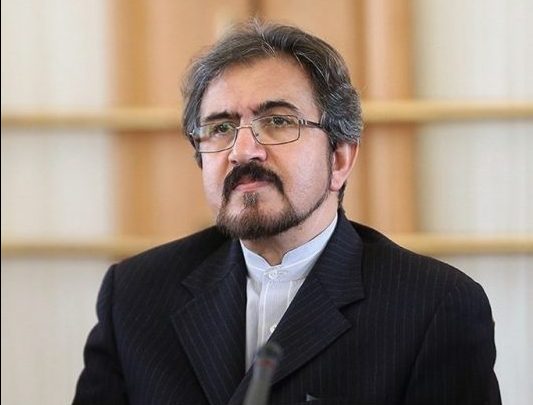In a Monday statement, Qassemi slammed the statement as an example of interference in the internal affairs of Iran, saying that it is based on inaccurate, biased, and unrealistic information.
He pointed out that these few countries have falsely called themselves representatives of the international community.
“The US and other violators of the most natural and obvious human rights are not in a position to make biased judgments about other countries with different cultures and diversities.”
Qassemi highlighted the principles of the Islamic Republic of Iran’s developed constitution and the recent resolution of the Expediency Council on the rights of religious minorities, saying that throughout the history Iran has witnessed the peaceful presence and coexistence of various religious factions.
“At the moment, all divine religions in Iran are represented in the Iranian parliament and other bodies while enjoying all citizenship rights,” underscored the Iranian spokesperson.
He also scorned the baseless remarks of US Vice President Mike Pence about religions and religious ideas at this conference, noting that throughout the history, the Iranian people lived in a peaceful atmosphere with other minorities and believers of other religions.
He further highlighted that followers of all divine religions have practised their religious rituals throughout Iran and the country’s law protects these freedoms.
“Unfortunately, fighting against other religions and ethnic groups has spread to this region from the Western side of the world leading to catastrophes at times,” stated the Iranian official.
The US State Department concluded its first-ever Ministerial Meeting to Advance Religious Freedom Thursday (July 26), with declarations claiming further efforts to reduce religious persecution.
Secretary of State Mike Pompeo pointed to an action plan, dubbed the Potomac Declaration, that lays out “concrete ways” to protect religious groups around the world.
25 countries co-signed a statement condemning abuses of religious freedom by terrorist groups, while fewer than a dozen added their names to statements condemning religious restrictions in China, Iran and Myanmar.
